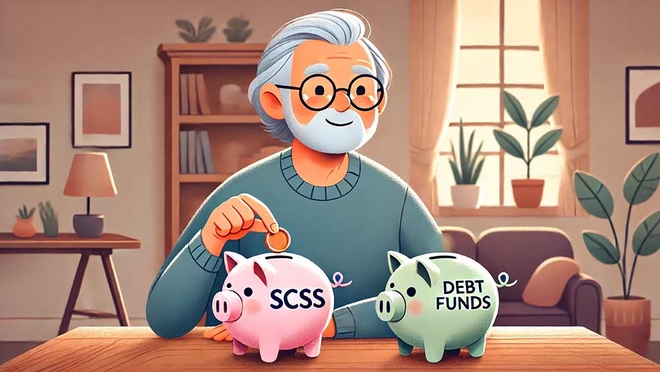 AI-generated image
AI-generated image
Since the government raised the Senior Citizens Savings Scheme's (SCSS) maximum limit from Rs 15 to Rs 30 lakh earlier this year, 78-year-old Venkatesh Dhanwantari wants to know if he should move his money from debt funds to SCSS.
This article was originally published on December 12, 2024.








